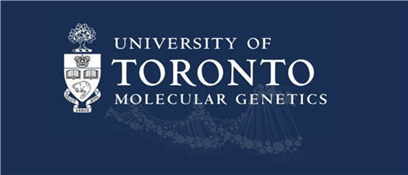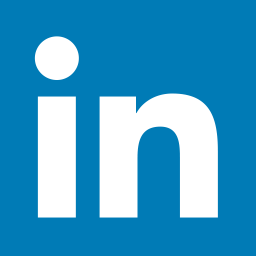Online Hours
Hours displayed in:Eastern Time (US & Canada)
About
 |
About the Department of Molecular Genetics
We invite you to explore our website and learn more about the Department of Molecular Genetics, which holds a leadership position in Canada and internationally as a premier venue for biomedical and life sciences research and education. We are an engaged and collaborative community within the University of Toronto's Faculty of Medicine that fosters exceptional innovation and discovery. Our faculty, fellows, and students are highly acclaimed for pioneering phenomenal advances in some of the most exciting areas of modern science with a profound impact on human health.
Our vibrant community is equipped with cutting-edge facilities in the heart of downtown Toronto’s Discovery District. We are situated in five geographic ‘nodes’ within a ten-minute walk from each other, including prestigious research institutes and hospitals. We have over 100 faculty members, including luminaries at the forefront of diverse fields that span the frontiers of biological research and discovery in the 21st Century, providing an enormous breadth and depth of research expertise and training.
Our graduate programs provide an outstanding platform to successfully launch into diverse career paths including those in academia, teaching, consulting, biotechnology and pharmaceutical industries, scientific writing, patent law, ethics, and policy. We build on the strength of our alumni community to empower our trainees for success and to make amazing things happen in Molecular Genetics.
Want to learn more?
Click HERE to Join our Mailing List!
And CLICK HERE TO REGISTER for our MoGen Info Night on Oct. 29th from 3-5pm!
More info about our programs:
Scroll down to learn more!
Or CHAT with a MoGen Rep!
MoGen Graduate Program Highlights
- Rotation system- graduate students spend 5 weeks in 3 different labs before choosing which lab is right for them.
- Focus on research- we believe this is the best way to train our graduate students to become independent scientists. Students take two Foundational Genetic Approaches courses in their first semester, attend student seminars, and Ph.D. students take an additional 3 topic courses (12-hours each), and the rest of their time is spent focusing on their research.
- Direct entry to our Ph.D. program- for those qualified applicants who only have a B.Sc. degree.
- Reclassification to Ph.D.- a straight-forward transition from the M.Sc. stream to the Ph.D. stream without having to write an M.Sc. thesis.
- A competitive & guaranteed stipend that does not require spending time being a Teaching Assistant, although those opportunities exist for those who are interested.
- An annual scientific retreat at a rustic northern lake-side resort where students and faculty can exchange ideas and learn more from one another.
- Young and energetic faculty- 32 members have been recruited to department over the past 10 years. Although our ‘experienced faculty’ are masters at adapting new scientific approaches, our newer faculty members bring an energy and perspective that provides new and exciting opportunities for our graduate students.
We are one of the BEST venues in the world for graduate students. Here you can learn how to become an independent scientist and make important biological discoveries in the process.
Graduate Degree Programs Offered by MoGen
The department offers both M.Sc. and Ph.D. degrees in Molecular Genetics. Students who enter with a B.Sc. degree may either enter into the M.Sc. Program or be admitted directly into the Ph.D. program depending on their preference and qualifications.
M.Sc. Program: Those who enter into the M.Sc. program have several options: a) complete their M.Sc. degree; b) successfully complete a reclassification exam and transfer to the Ph.D. program in their second year; or c) complete their M.Sc. degree then apply for re-admission to the Ph.D. program.
Ph.D. Program: Students with a M.Sc. or B.Sc. degree who are admitted directly into the Ph.D. program must pass a qualification exam during their second year.
The Department of Molecular Genetics also offers a Computational Biology Molecular Genetics (CBMG) PhD program, as well as two professional Master’s Programs - The Master’s of Science Program in Genetic Counselling and the Master’s of Health Sciences in Medical Genomics Program. More information about these programs can be found on our website.
Our Rotation System - What It Is & Why We Love It
Our department does not require students to pre-arrange a permanent supervisor prior to joining the program. Instead, rotations are an important feature of our program. New students must rotate through at least three laboratories before choosing a permanent laboratory and supervisor. Rotations begin on the first Tuesday after Labour Day in September, and end on the final day of the Fall Term. The exact dates of each rotation will be communicated to students at Orientation each year. The department will help new students arrange their first two rotations, and the student will arrange the third rotation. Each rotation spans approximately five weeks.
Rotations allow students to sample different research areas and thus to make a well- informed choice of research topics, laboratory environments and supervisors. Rotations give students the opportunity to explore our diverse research areas before deciding where they will settle in for their graduate experience. We have an extremely high student satisfaction rate regarding the lab they end up chosing as a direct result of the rotation system. In fact, many of our students chose MoGen specifically because of our rotation system!
*Due to the COVID-19 pandemic, we are currently allowing students to forego their rotations and join a lab directly if they find a permanent thesis supervisor who agrees to accept them into their lab without a rotation. Students may want to ask prospective supervisors if they require a rotation in their lab prior to accepting a student.*
OUR WORLD-CLASS FACULTY AND DIVERSE RESEARCH AREAS
A major strength of the Department of Molecular Genetics is its widely recognized faculty who run a remarkable variety of world-class research programs in diverse areas such as:
Genetic Models of Development and Disease
Molecular Medicine and Human Genetics
Cellular and Molecular Structure and Function
Molecular Microbiology and Infectious Disease
Computational and Systems Biology
Functional Genomics and Proteomics
Our Faculty have made important contributions in many fields and have been the recipients of numerous national and international awards. As a department, our major focus is on graduate training. Graduates from our programs regularly gain postdoctoral positions in prestigious laboratories and staff positions in major universities, research institutes and industry throughout the world.
ADMISSIONS REQUIREMENTS & APPLICATION INFORMATION
Applicants to the Department of Molecular Genetics must first apply to the School of Graduate Studies (SGS) through the on-line admissions application which is housed on a secure server in the University of Toronto. Your application will be considered only after you have entered your personal and academic information in the on-line application, submitted the application fee and submitted all required supporting documents.
Applicants to our M.Sc. graduate program MUST have:
Completed or be nearing the completion of a Bachelor of Science degree
Achieved a B+ average or higher both cumulatively and in the final year of a B.Sc. degree to be considered for our M.Sc. program
To be considered for direct entry to the Ph.D. program, applicants MUST have:
- Completed or be nearing the completion of an M.Sc. degree, and have distinguished themselves during their Master's work.
- If applying directly from a B.Sc. with no M.Sc., applicants must have achieved an average of A- or higher in all relevant courses from their B.Sc.
Meeting the minimum admission standards does NOT guarantee entrance to the program. Competitive applicants will have non-classroom experience working in a laboratory in addition to a background in Genetics, Molecular Biology, Microbiology, Biochemistry, Bioinformatics, or related fields. Students with a background in Physics, Chemistry, Math, Computer Science, Engineering or related quantitative sciences are encouraged to apply - these applicants will have a competitive application if they have a demonstrated interest in biology.
*Important Note To Prospective Applicants*
Due to the ongoing COVID-19 pandemic, we understand that it may not be feasible to obtain hands-on research experience at the bench. We will take this into consideration during our admissions process, and encourage students to apply even if they have not had formal research experience prior to applying.
REQUIRED SUPPORTING DOCUMENTS FOR APPLICATION
Before you start, download the Applicants Checklist from our wesbsite. Use this checklist as a reference when completing your application to ensure that you are submitting all required documents and that they are in the correct format. All documentation must be submitted on-line by the document deadline date.
Your application must include the following:
A minimum of two reference reports from professors or lab heads who knows you, your work/study habits, and research capabilities. At least one of the letters should be from a professor who has supervised you directly in a laboratory setting in which you performed an independent research project. A third letter is optional, but may be helpful.
A scan of your official transcripts (submitted on-line). Official transcripts are not required at this point.
Your CV (submitted on-line).
A Letter of Intent (submitted on-line). This letter should briefly describe your previous research experience, outline your future goals, and research interests (e.g. tell us which professors in our department you would be interested in working with and why).
International Applicants must secure a sponsoring faculty member ahead of time, and include a signed Sponsorship Form with their application.
APPLICATION SUBMISSION DEADLINES
SEPTEMBER ADMISSION DEADLINES - We offer three deadlines for September admission:
November 15
Online applications and all supporting documents, including references, electronic transcripts, CV and letter of intent, must be submitted by November 15. Applicants will receive an admission decision in December.
January 15
Online applications and all supporting documents, including references, electronic transcripts, CV and letter of intent, must be submitted by January 15. Applicants will receive an admission decision in March.
May 1
Online applications and all supporting documents, including references, electronic transcripts, CV and letter of intent, must be submitted by May 1. Applicants will receive an admission decision in June.
JANUARY ADMISSION DEADLINE - September 15
For students wishing to start the program in January, online applications and all supporting documents, including references, electronic transcripts, CV and letter of intent, must be submitted by September 15. Applicants will receive an admission decision in November.
This info and more can be found on our website at www.moleculargenetics.utoronto.ca



